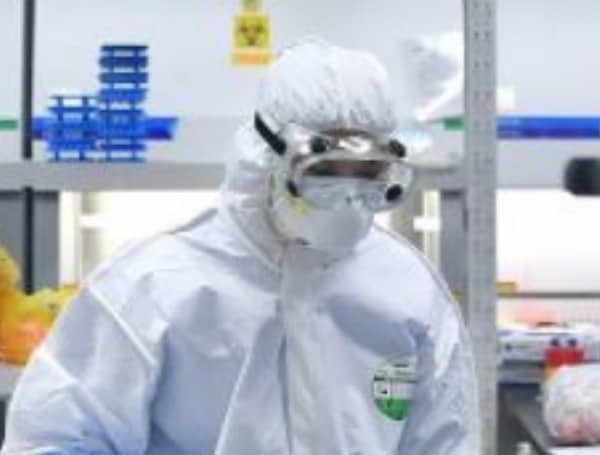Eleanor Bartow

The director of the National Institutes of Health wants to answer congressional inquiries about the agency’s links to a Wuhan lab in private, he told the Hugh Hewitt Show on Wednesday.
Referring to a congressional letter on his agency’s work with the Wuhan Institute of Virology, NIH Director Dr. Francis Collins said, “in our response, we offered to have a chance to simply get into a secure space and have a conversation … Much of the information they’re asking for, we don’t have the answers to. Some of it is pretty sensitive, not quite classified, but getting close to that.”
“No good. The public needs answers,” Washington Post columnist Josh Rogin tweeted in response.
The Wuhan Institute of Virology is at the center of speculation that COVID-19 could have accidentally leaked from a lab.
The NIH’s granting of funds that went to a Wuhan lab complied with regulations because it was for research on a bat virus, not a human one, and was to study how the virus transferred to humans, Collins said in separate comments published Wednesday in The Atlantic.
“The terms of the grant were limited to bat viruses, and absolutely did not allow gain-of-function research in the sense of studying human pathogens,” he said.
“The gain of function that is of much greater concern, and for which the United States has in place stringent oversight guidelines, relates to experiments that might make a human pathogen more transmissible or more virulent,” Collins told the publication.
Under regulations created in 2017, federal funding for research on viruses with pandemic potential must be reviewed by a board that evaluates its risks. But the board does not review a grant proposal if the funding agency determines that the virus being studied is unlikely to be highly transmissible and deadly to humans.
Nor does the board review grant proposals studying “naturally occurring pathogens that are circulating in or have been recovered from nature, regardless of their pandemic potential,” the regulations say.
The research regulations are largely shrugged off, Vanity Fair reported Thursday.
“If you ban gain-of-function research, you ban all of virology,” an unnamed longtime agency official told the magazine. “Ever since the moratorium, everyone’s gone wink-wink and just done gain-of-function research anyway.”
NIH grants to EcoHealth Alliance totaling $600,000 between 2014 and 2019 were subcontracted to the Wuhan Institute of Virology.
The NIH subcontract was to study viruses from bats living in caves in China, because bat viruses were the source of the human diseases SARS and MERS, respiratory diseases in humans that are also caused by coronaviruses, Collins said.
Collins still believes by far the most likely origin of SARS-CoV-2 is a natural zoonotic pathway from bats to some unidentified intermediate host to humans, he told The Atlantic.
He said the theory that the virus may have leaked from a lab was “muddled up with the intentional-bioweapon hypothesis,” leading to “too much credibility to the latter and not enough to the former.”
Content created by The Daily Caller News Foundation is available without charge to any eligible news publisher that can provide a large audience. For licensing opportunities of our original content, please contact licensing@dailycallernewsfoundation.org.
Support journalism by clicking here to our gofundme or sign up for our free newsletter by clicking here
Android Users, Click Here To Download The Free Press App And Never Miss A Story. It’s Free And Coming To Apple Users Soon.
